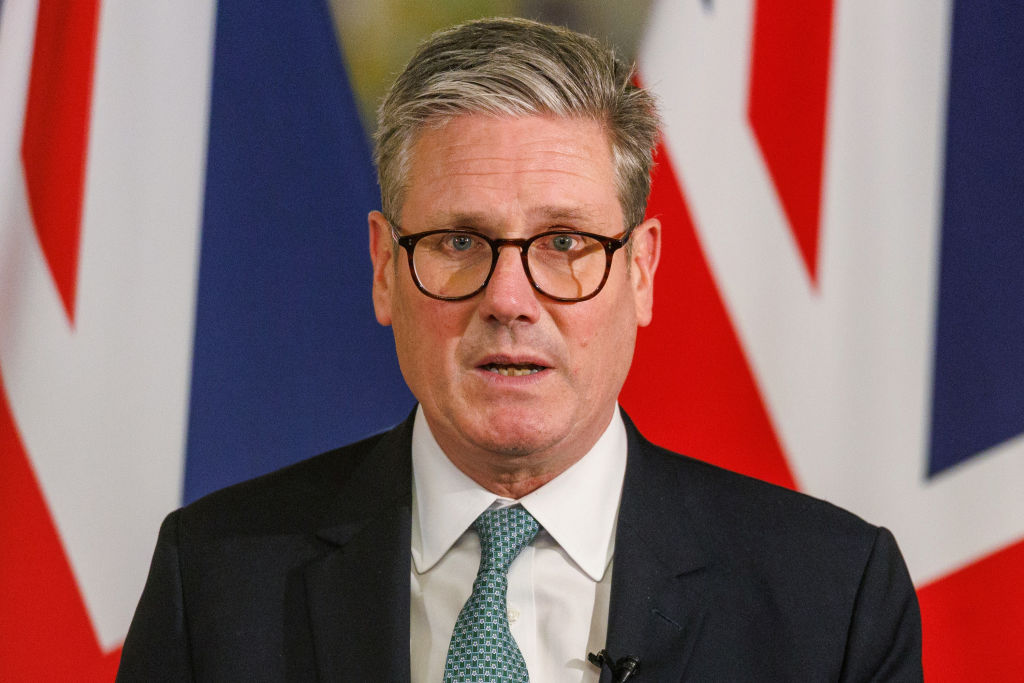The Governor of the Bank of England, Andrew Bailey, warned on Thursday of the need for the UK to “rebuild” relations with the European Union. By the weekend, this was starting to look like a pre-emptive strike. On Friday Stephen Moore, a key economic adviser to Donald Trump, cautioned Keir Starmer not to get too close to the EU if he wanted a free trade deal with the US.
Britain’s Labour government now finds itself with a decision that it is singularly ill-equipped to take. Should it follow the Bank of England’s advice or that of the incoming president of the USA? Peter Mandelson, the frontrunner for the US ambassador role, hopes that Britain can “have its cake and eat it” by staying on good terms with both sides. Perhaps, but it seems unlikely that Britain can at once become closer with the EU and secure a trade deal with America. The next US government is already rattling its trade war sabres with the EU, and Moore’s comments indicate that Trump wants to know on whose side Britain is going to be.
This leaves Starmer with a difficult choice: pick the EU or the USA — or try to play one side off against the other. One point for siding with Brussels is that much more of Britain’s existing goods trade is with the EU than with the US, and that the UK is unlikely to sustain much damage from US import tariffs. On the other hand, the American economy is far more dynamic than the sclerotic EU, with much healthier medium-term prospects. What’s more, with the Ukraine war the US has already shown willingness to use its geopolitical weight to damage European economies. American trade restrictions may well go beyond goods imports.
Given the UK’s weak economic position, it is probably wise not to antagonise the Americans or their mercurial soon-to-be president just yet. And given the obvious geopolitical and economic edge the US holds over the EU, it might also be wise to side with the stronger party in a trade war the UK cannot avoid. A further complication is that any free trade deal with the US may require significant divergence from single market regulations, putting much more pressure on the Northern Ireland Protocol if the EU decides to interfere with intra-UK trade in response.
It is important not to imagine that either of these choices can have more than a limited effect on Britain’s chief economic problem — its lack of productivity growth. Nevertheless, getting the geopolitics wrong will not improve matters, and some choices will have to be made.
The decision requires a government which is able to think ruthlessly about where the national interest lies, to think politically. Labour should be ready to abandon its reflexive Europhilia and instead consider how it might take advantage of both a Brexit and an American president that it instinctively despises in order to get the best deal available from both sides. In the process, one possibility is that Labour may have to call the EU and Dublin’s bluff over the Irish border and make some serious contingency plans for the future government of Northern Ireland if that doesn’t work.
Apart from the possibility that Mandelson might be appointed ambassador in Washington, nothing about this government’s performance so far suggests that it is remotely prepared for the challenges of statecraft involved. Labour politicians’ strong sense of their own virtue is a particular disadvantage here, and it is not obvious that any part of the British state really understands that the UK is not in the premier league of world powers anymore. Really, we need to start acting like the second-division regional power that we are. We must stop fantasising about Britain’s role as a leader in confronting global challenges and instead attend to the intricate demands of negotiating our way through the accelerating fragmentation of the old world order.
When Britain left the EU, we collectively asserted our sovereignty as a nation. For a few years, our political class has nevertheless been able to avoid the implications. But Trump’s election may bring that brief period of evasion to an end. The British Government faces the prospect of having to make a major strategic decision independently, on its own account, without being able to pass off the burden of responsibility to some supranational intergovernmental forum. The future of our national life is in the hands of our own government, the one that we elected.











Join the discussion
Join like minded readers that support our journalism by becoming a paid subscriber
To join the discussion in the comments, become a paid subscriber.
Join like minded readers that support our journalism, read unlimited articles and enjoy other subscriber-only benefits.
Subscribe